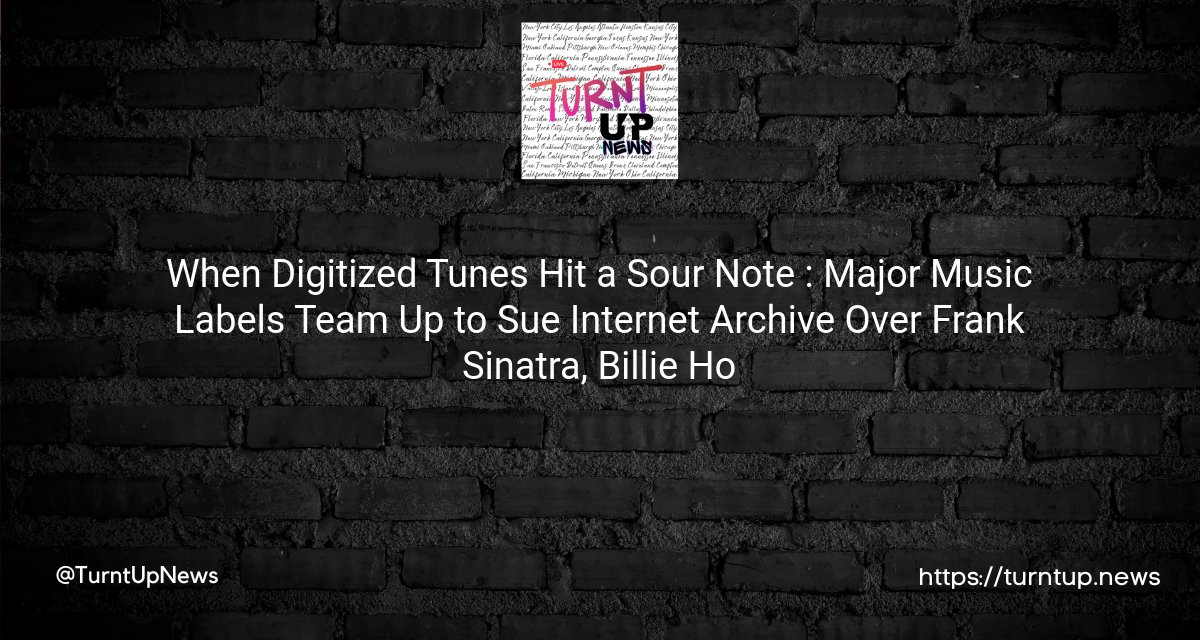🎤 When Digitized Tunes Hit a Sour Note 🎵: Major Music Labels Team Up to Sue Internet Archive Over Frank Sinatra, Billie Holiday, and More – Is Preservation Theft?
TL;DR; Major music companies, including Sony Music Entertainment, are going head-to-head with the non-profit Internet Archive, claiming that their digitization of more than 400,000 classic 78s, including hits from Frank Sinatra and Billie Holiday, is a “$372 million rip-off.” 🎼 Is it a cultural crusade or a colossal heist? Buckle up, audiophiles, as we groove into the details. 🕺💃
The Showdown of the Century – In One Corner, Preservation, and in the Other, Profits? 🥊
In a world where vinyl is vintage and 78s are antiques, the Internet Archive seemed to be on a noble mission, with its Great 78 Project working tirelessly to digitize, preserve, and share 78rpm records for research and discovery. 🎶 However, for the music bigwigs, the Archive’s act seems more like a “smokescreen” for “wholesale theft.” Is it preservation or piracy? 🏴☠️
The Accusation 🧐: Sony & Co. vs. the Internet Archive 🖥️
According to the lawsuit filed in the Manhattan federal court, the Internet Archive has committed “blatant infringement,” hosting thousands of works by the greatest artists of the 20th Century, including Louis Armstrong and Thelonious Monk. Not music to the ears of the record companies, who already have these recordings “available for streaming or downloading” on authorized platforms. But what about the ones that aren’t? Do they have a point, or is it just a matter of control? 💽💼
The Demand 💰: Pay Up, Internet Archive!
The plaintiffs are not mincing words here. They’re asking for the removal of all copyrighted material and a whopping $150,000 for each infringed work, totaling around $372 million. Does the preservation of cultural heritage have a price tag? 💸
The Legal Beat 📜: Dancing with the Law
While the Internet Archive seems to be on a mission of cultural preservation, Congress begs to differ. In 2018, they passed the Music Modernization Act that extended the copyright for pre-1972 music to 2067. Does this act protect artists or profits? 🤔
A Twist in the Tune 🎧: The Silent Archive
The Internet Archive has remained radio silent, not responding to comments after business hours on Friday. Are they plotting their next move, or has the music finally stopped? 🤫
A Final Note 🎙️
As this legal battle unfolds, one question resonates louder than the rest: In a world where technology is redefining art and how we consume it, who truly owns our cultural heritage? Is it the artists, the corporations, the public, or the archivists?
When it comes to the question of ownership and preservation, this lawsuit may be a symphony that’s only starting. But as the music plays on, we’re left to wonder: Does the need for preservation ever justify bypassing legal boundaries? Or is the Internet Archive’s endeavor an infringement of creative rights? Are we losing our grip on our cultural past, or are big companies just too possessive of their golden oldies?
So, dear readers, what’s your take on this digital discord? Is the Internet Archive playing a sweet serenade to our past, or hitting a false note with the music industry? Let’s hear your thoughts! 🎵🤨





